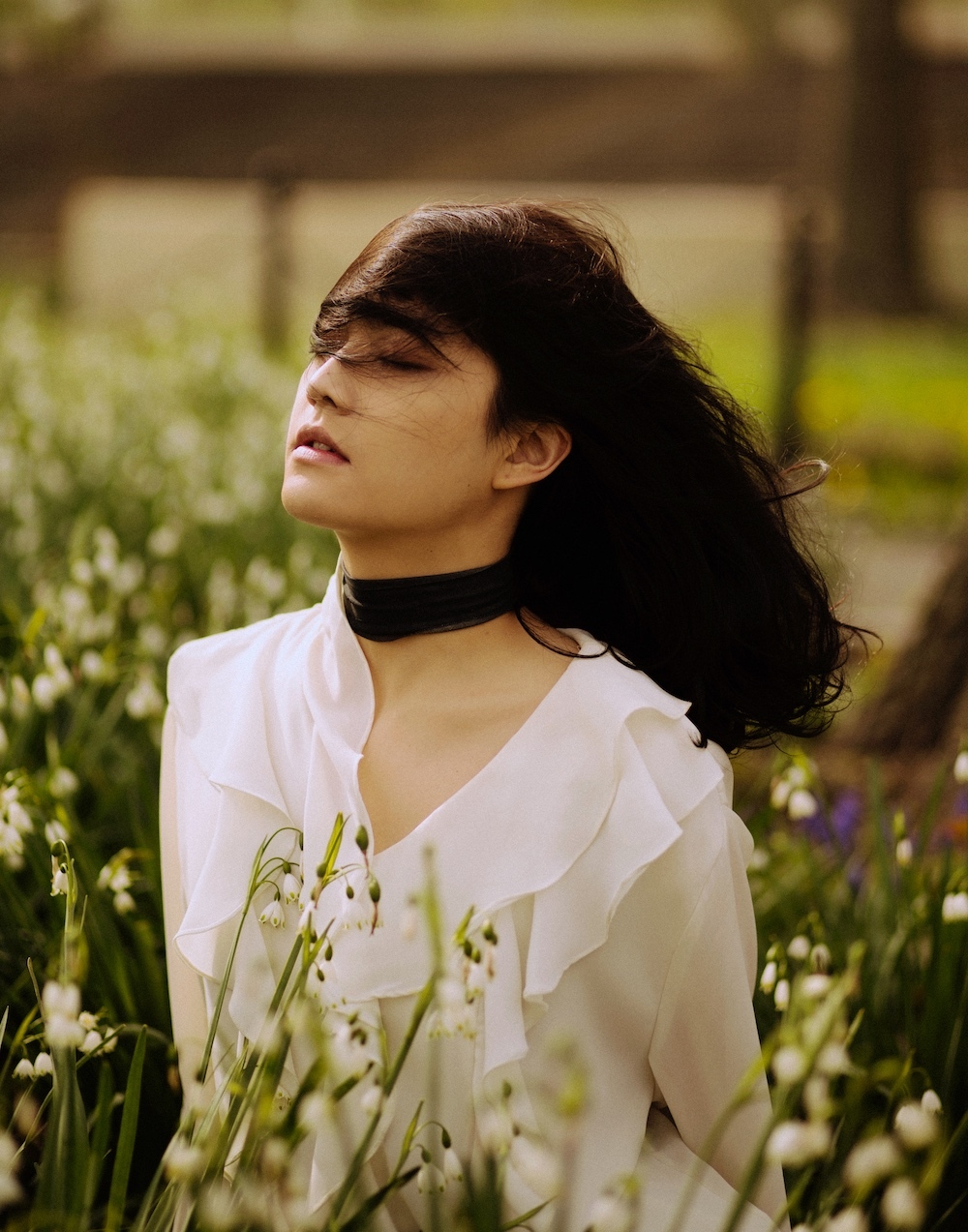Third, 25, clothing designer
What is the story of your hair?
It’s been years since I’ve grown my hair long and kept it distanced from bleach – now I’m in the process of growing it longer and healthier than it’s ever been.
How is your hair connected to your identity? Does it influence how you identify in your gender?
My gender isn’t really dependent on my hair. It’s so much more connected to my identity and self-expression – as an accessory to tie in or to complement.
How did you wear your hair when you were eight years old? Did it conflict with your gender identity as a child?
I wore my hair pretty short when I was at that age due to school. As a child, my gender dysphoria dealt more with dissonance on genitalia and body image. It was only in high school where I began to experiment with gender expression through hair, makeup, and clothing.
How will you wear your hair when you’re 80 years old?
Probably short and gray.
Who influences your hair choices?
My mom and sister, ancient Asian hairstyles, and Winona Ryder.
Describe your morning hair ritual.
I wash and condition. Dry and style. Tie in the back, low or high.
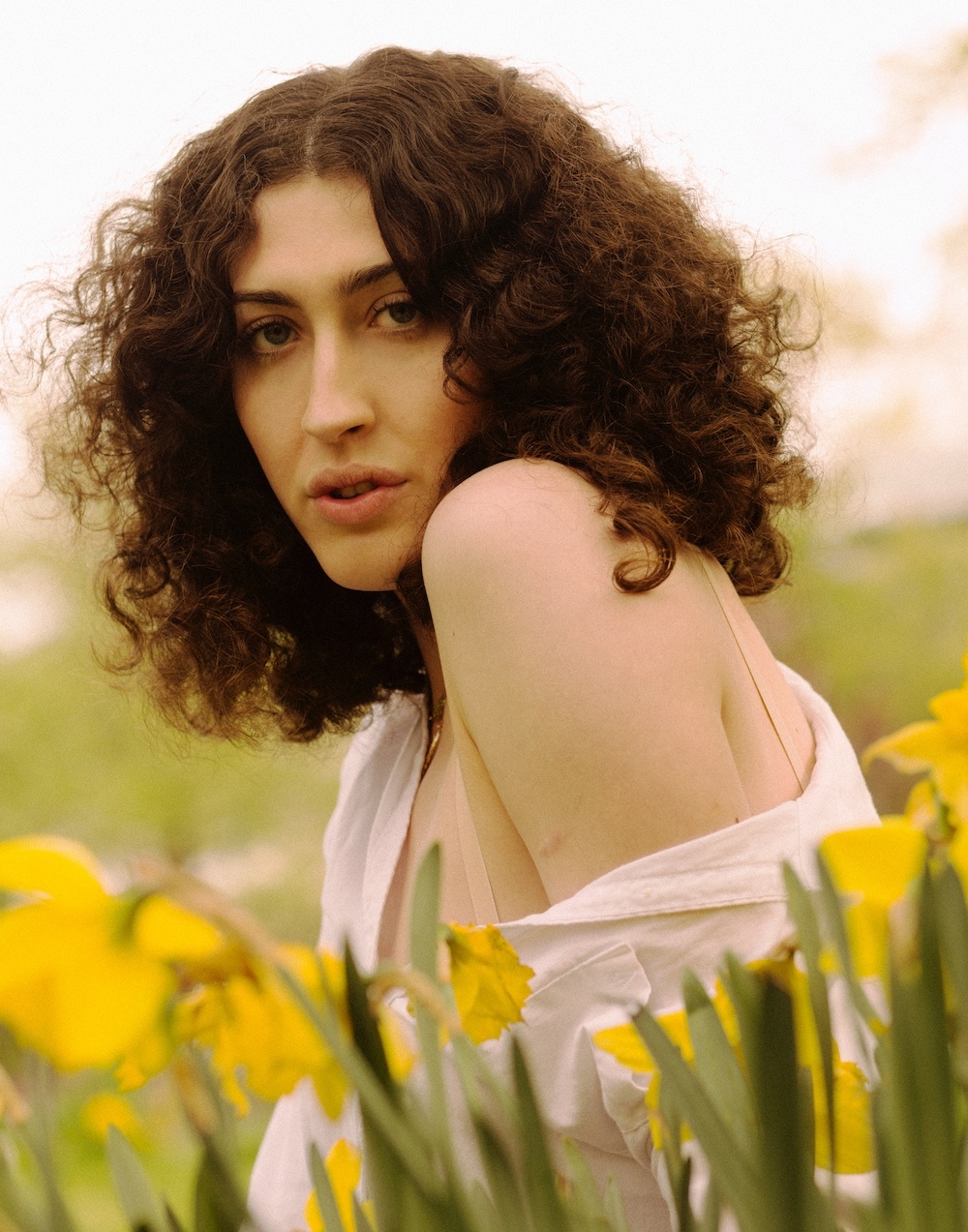
Stevie, 23
What is the story of your hair?
My hair has taken forever to grow out, and I’m still stuck with these bang remnants. It’s not taken a whole lot more than two years of waiting to manifest. It’s not too crazy a cut or anything, I think most of my hair’s character comes from its thickness and texture.
How is your hair connected to your identity? Does it influence how you identify in your gender?
I’d say my hair doesn’t influence how I identify, but I like to hope it influences how people identify me!
How did you wear your hair when you were eight years old? Did it conflict with your gender identity as a child?
I wore my hair in the same little combed-to-the-side style for most of my life. But you know I always lived for putting a towel on my head and pretending I had 30 inches.
How will you wear your hair when you’re 80 years old?
I hope when I’m 80 I wear a long Renata Adler type braid. In the nearer future I’m aiming for waist length jerry hall curls.
Describe your morning hair ritual.
It varies, generally something moisturizing and something gel-like, and hours of air drying. I’ve been using a castor oil product because I want thick, thick hair.
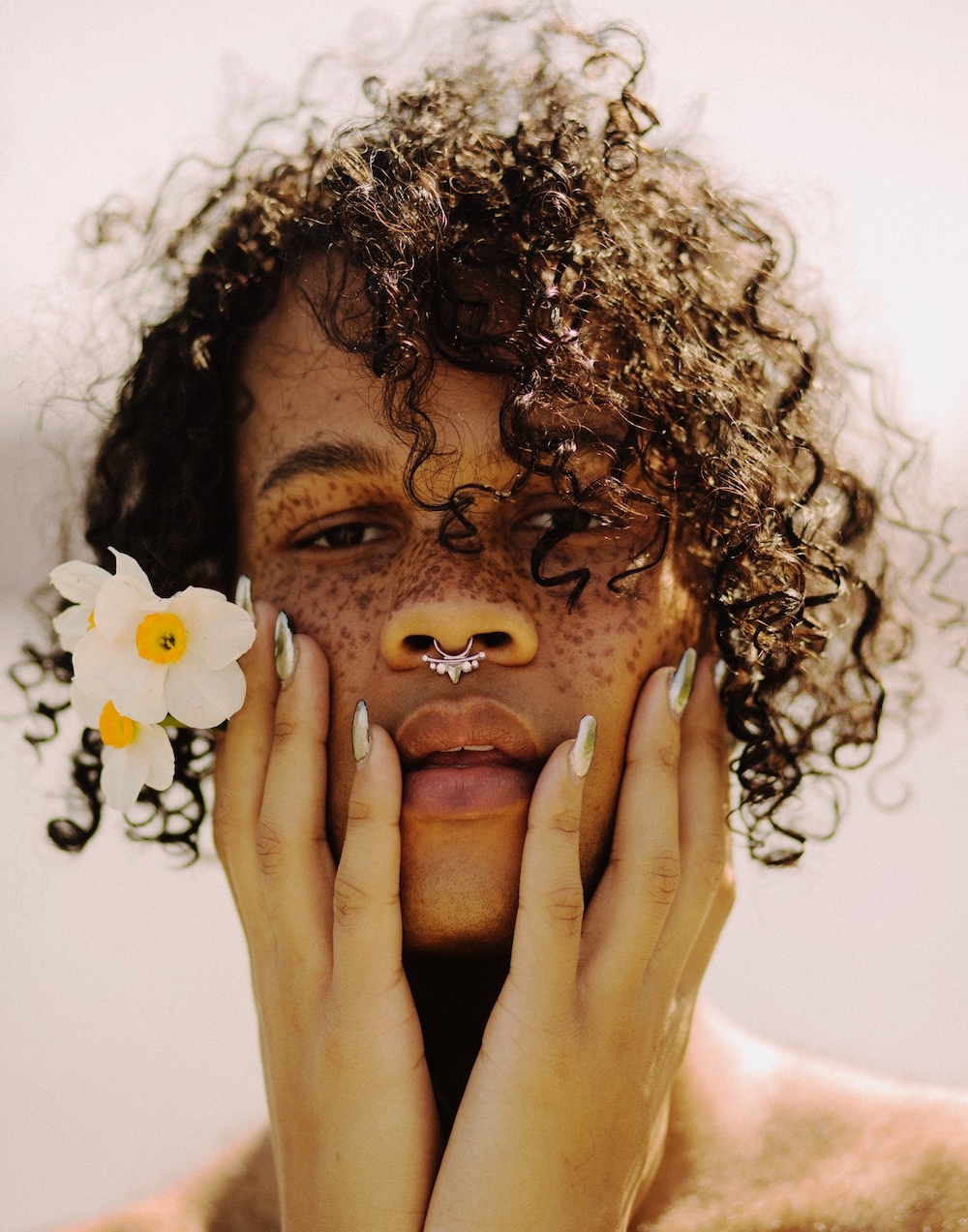
Merlot, 21, musician/model
*What is the story of your hair? *
My hair was always something I had trouble figuring out when I was growing up. It was an entirely different texture than anyone else’s I was growing up with, and I had trouble trying to style it and find products that worked for me. It wasn’t until I got to college and met friends with hair like mine that I was able to get a formula figured out. That was when I was able to grow my hair out longer and healthier for the first time, and I shaved the sides and styled it into something I felt expressed me a lot more. Now I have a lot more leeway to play around with it.
How is your hair connected to your identity? Does it influence how you identify in your gender?
As much as I believe that the styling and/or length of hair isn’t inherently masculine or feminine, my hair has become an integral part of my presentation and gender expression. As someone who is non-binary that loves to float around on the spectrum of gender, playing with my curls and even getting extensions from time to time has been great in assisting and affirming my identity. I believe my loose curls naturally soften my facial features, but I do feel my most femme when I’m sporting twists or box braids that hang well down my back.
How did you wear your hair when you were eight years old? Did it conflict with your gender identity as a child?
When I was eight, I’m sure my hair was a fuzzy little ‘fro of loose curls. While I don’t remember specifically being conflicted about my hair, I’m almost positive I was also daydreaming of having long pin-straight hair blowing in the wind, or even having braids like some of my classmates. I probably hit an age where I realized that all of those things are possible through wigs, extensions, and the upkeep and nurturing of my own hair.
How will you wear your hair when you’re 80 years old?
I’ve actually always been excited to see my natural hair transition to salt and pepper, and then go full grey. I wonder often about how the texture of my curls might change over time. I’m sure by 80, I will have had my fill of altering my hair, and I’ll just wear it however it wants to be worn.
Describe your morning hair ritual.
I usually wring my hair dry once I get out of the shower and put leave in conditioner in it every day, as it’s naturally pretty dry. Then I always let that air dry, so I’m commonly seen shaking it back and forth to speed up that process.
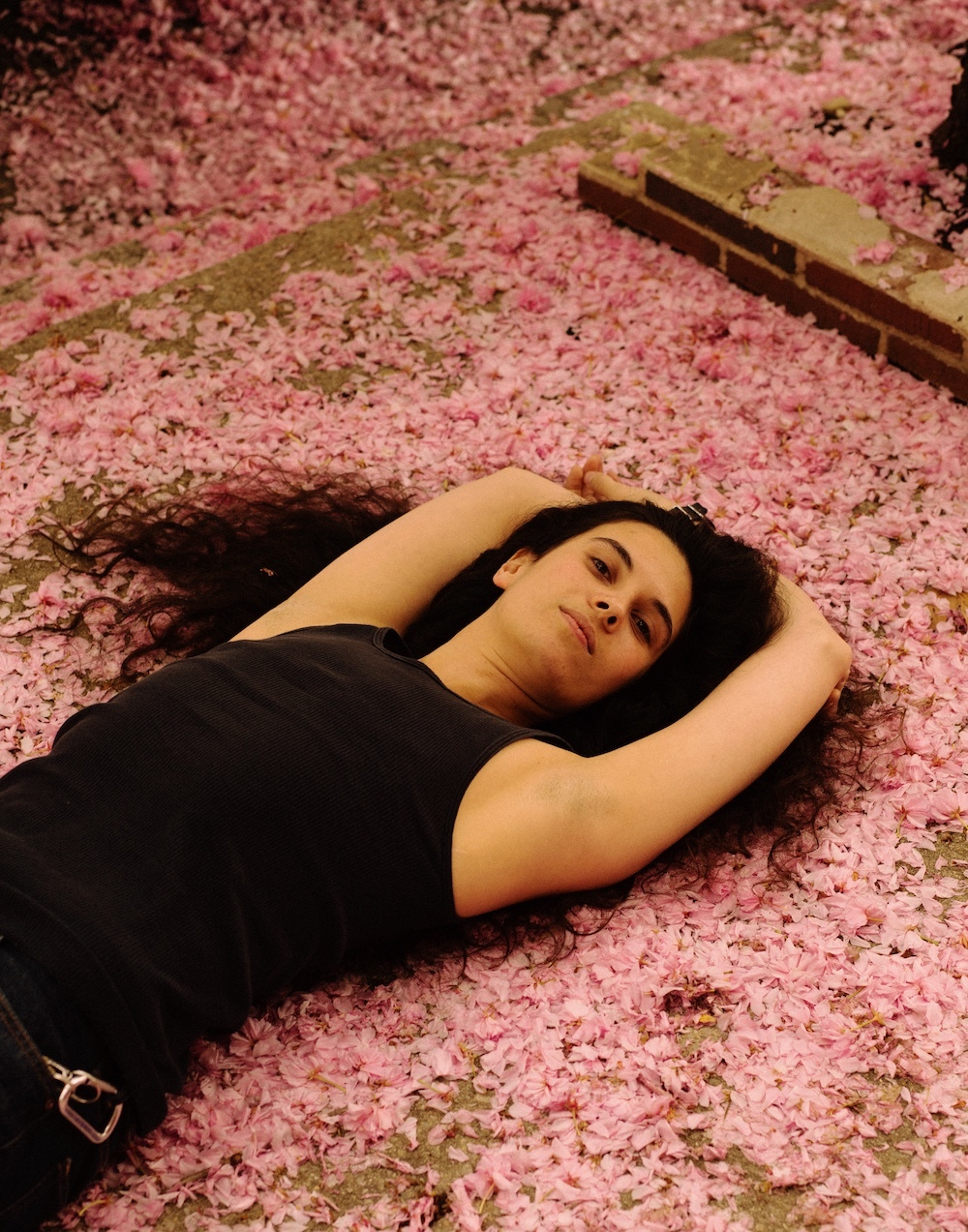
Ethan Czuy Levine, 32, grad student/adjunct professor
What is the story of your hair?
I got super into heavy metal in high school. The men in those bands, much like the metalhead boys I became friends with, all had long hair. It made you more recognizable, and was a prerequisite for headbanging. I remember one of my relatives commenting that I could “walk on stage with Poison and no one would know the difference.” If memory serves, this was meant as an insult, but it felt like validation.
All that being said, there was a time in which my transmasculinity seemed to be at odds with this. About 12 years ago, when I was first living as Ethan, I briefly attended a support group for trans and questioning folks who had been assigned female at birth. “Passing tips” were all the rage back then. Everyone seemed to assume that everyone was invested in appearing as conventionally masculine as possible, and that we all wanted to be read as (nontransgender) men in social encounters. That meant short hair. I expressed misgivings about this at my first meeting, and pointed out that the men I strove to emulate looked different; the others gently informed me that I should cut my hair immediately, just to be safe, and could revisit the decision “after going on T.” I caved and followed their advice. My second meeting was uneventful. By the third meeting, my hair had grown back to an inch or so in length. One of the men in the support group declared that this was far too much. He insisted that I needed to be more careful, that this sort of thing would “get me ma’amed,” and just went on and on for several minutes. No one else said anything. I didn’t go back after that.
Eventually, I wound up attending a pretty kickass show and flinging my head forward – with no payoff. It was just all wrong. And I resolved to grow my hair back, and to remember that looking metal meant more to me than looking any (other) kind of manly.
How did you wear your hair when you were eight years old?
Like most eight year olds, I didn’t have much say in this. My hair was straight back then (and all years before puberty), and around shoulder length.
While I can’t think of an experience that made me think of my hair as an inaccurate expression of myself in terms of gender, I do remember fixating on the fact that I looked a lot like Noah Hathaway’s portrayal of Atreyu in the film version of The NeverEnding Story. Skin tone, hair, even our faces were similar. I still have some childhood photos with comments like “I look just like Atreyu” scribbled gleefully on the back.
I don’t think that I was intentionally seeking out a sort of masculine/boyish doppelganger. Chances are that I didn’t really need to. Owing to the dreadful double standards imposed on female-assigned and male-assigned kids, I was able to play at “boy things” and wear “boy clothes” and even relate to “boy characters” without attracting much scrutiny.
As an awkward postscript to that, I remember being grateful for these memories when I was first considering medical transition. By then, I had read a ton of autobiographies and academic articles about gatekeeping in transgender health care. It was comforting to know that my former fixation with resembling Atreyu might come in handy, should I have to produce some sort of medically normative narrative about “knowing I was really a boy from such a young age.
How will you wear your hair when you’re 80 years old?
Barring an unforeseen change in musical loyalties, I expect it will be about the same.
Describe your morning hair ritual.
Love this concept! That said, I don’t really have any…brushing after showers, which may or may not happen in the morning, is about it for my hair rituals. That and detangler (which is dreadfully underutilized by adults, if you ask me).
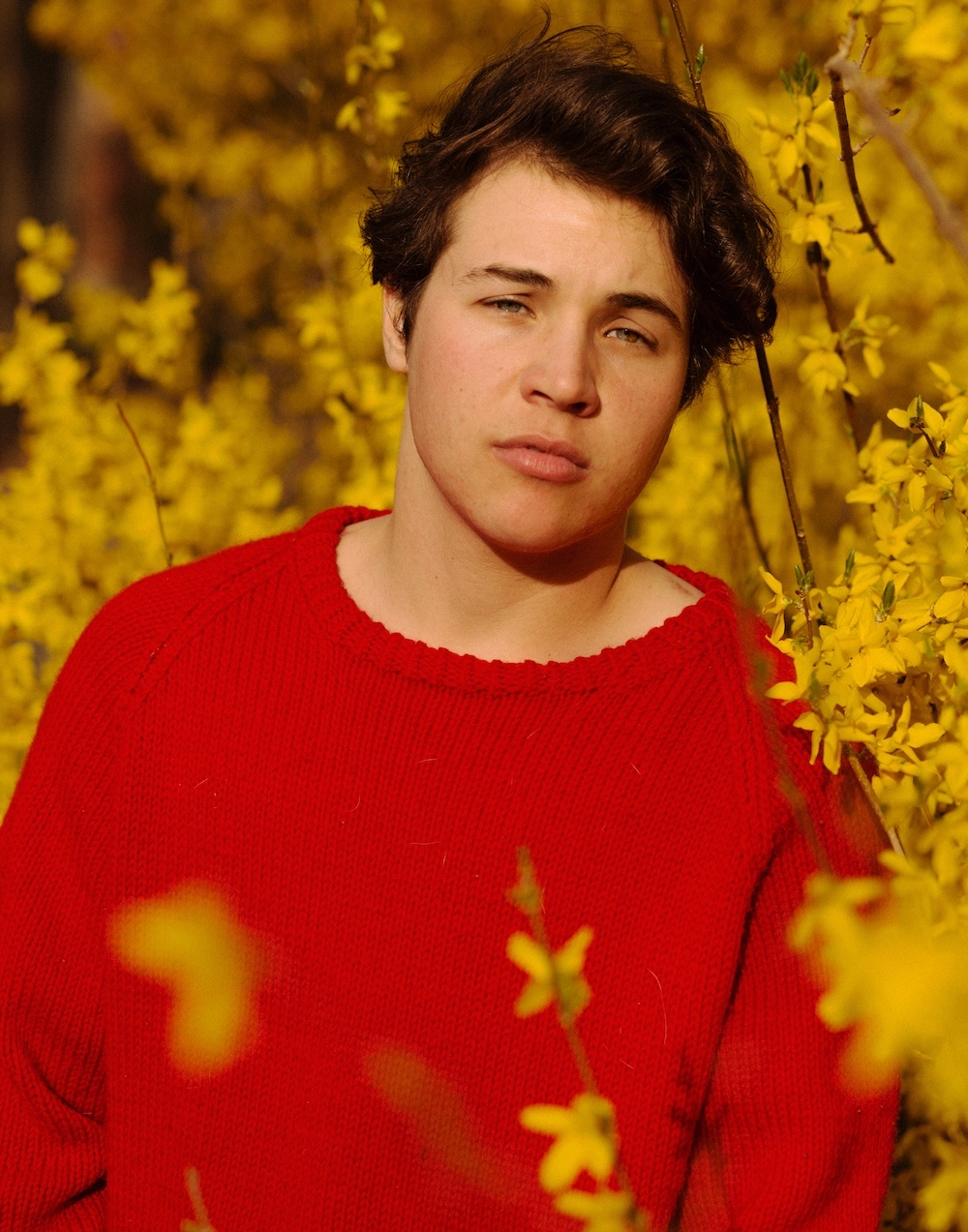
Luan Joy Sherman, 24, artist
*What is the story of your hair? *
When I was a kid I used to have this really sweet, blonde, curly baby hair. I always felt wicked proud to be the only person in my family with both curly hair and blonde hair, but the curl disappeared until I started testosterone at age 23. At that point my curls came back but the blonde disappeared and my hair turned the dark, brown color it is now.
How is your hair connected to your identity? Does it influence how you identify in your gender?
I spent so many years putting a lot of responsibility in the hands of cis-het normative strangers to define my gender and personhood. As a kid I always had bowl cuts and short hair, I wore my brother’s hand-me-downs, and people in public assumed I was a boy. This made my parents visibly uncomfortable, so it made me uncomfortable too. I started getting bullied for being a tomboy so I went through this phase of growing out my hair and dressing much more feminine, like skirts and push-up bras, the whole deal. Without those things, I would still be gendered male. It really blew my mind because at the time I didn’t realize I was trans at all, I identified as female, and getting “misgendered” that way got me thinking about the differences between how we see ourselves and how we are seen in the world. I cut my hair after my senior year of high school and it’s been short ever since. I recently tried growing it out again as a way of exploring “androgyny” now that I’m a year and a half on T, post top surgery, and feeling a lot more secure in my identity, but after a certain point it just didn’t feel right and I didn’t feel like myself. It felt messy and kind of killed my confidence but I was holding on to this theoretical idea of what it meant to have long hair as a “cis-passing” trans guy. As if my hair would make it clear to folks that I’m queer and not just a cis dude, even though long hair on cis dudes is now really trendy.
I guess I realized that people will make assumptions about my identity regardless of how I look, and it’s more empowering for me to decide who I am, than to give away my agency and make aesthetic choices based on assumptions made by total strangers. That’s a lot of power to just give away to cis normative standards and that’s not something I want to do anymore.
How did you wear your hair when you were eight years old? Did it conflict with your gender identity as a child?
I was such an awkward child: I had a bowl cut and was in a really heavy tomboy phase for most of my childhood, while also going through a growth spurt and being overweight. I remember going to the passport office with my mom and brother one time and the woman talked about us as her “sons”. It made sense from my outward appearance but I know my mom was mortified. She has been cutting my hair for a long time, she used to give my brother and I cuts during my whole childhood. My mom is still the only person who gives me haircuts I can feel good about. Whenever I would go to a salon the person cutting my hair would always try to give me a “girl’s” haircut. I’d ask for something specific and even bring a picture and they would always femme it up. It frustrated the hell out of me, like they were saying they knew better than me how I wanted to be seen in the world and would try to “gender my hair” accordingly. I stopped going to salons a long time ago because I realized they’re usually just really cis normative spaces and that doesn’t work for me, plus that shit is expensive.
How will you wear your hair when you’re 80 years old?
Honestly, when I’m 80 I really hope I still have hair! Going bald was actually one of the things that really stressed me out and made me sad before I decided to start T because we’re taught that hair is an important part of having a positive body image and confidence. I ultimately decided that hair loss wasn’t more important than feeling better and being okay in my body, so if it happens I’ll be okay, if it doesn’t, even better.
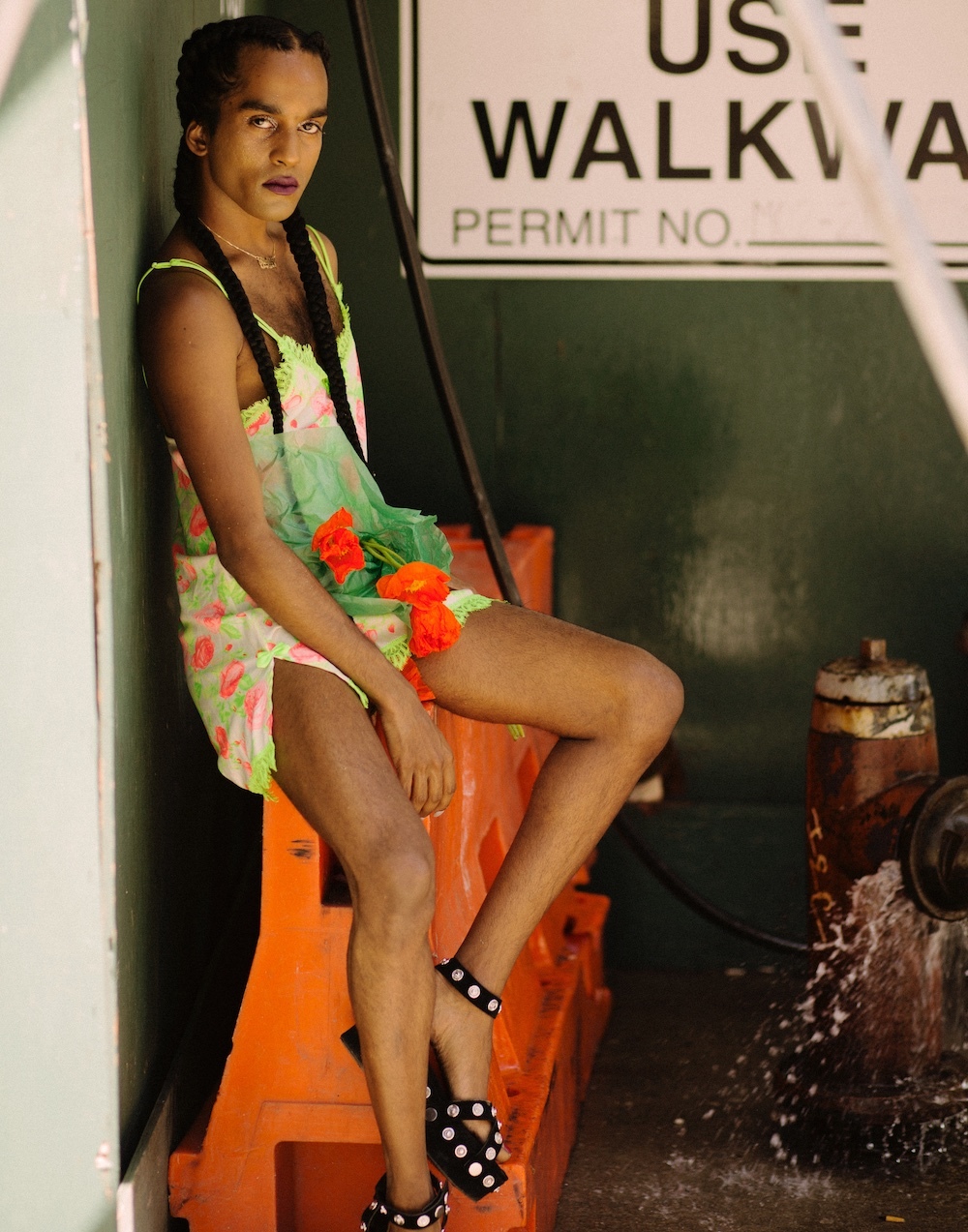
Richie Shazam, ageless and timeless, jack of all trades
What is the story of your hair? How did it manifest into what it is currently?
I’m an island gyal; made up of Guyanese and West Indian, deeply rooted in NYC. Well, it’s always been kinky and hard to deal with, but we are learning to tame the beast.
How is your hair connected to your identity?
Well, it’s very transformative and malleable which is also my character. We can even call my hair enigmatic, because I’m an enigma to many. That’s the truth.
Does it influence how you identify in your gender?
Well, I’m not so interested in identifying my gender. I’m just Richie Shazam. I’m not trying to put myself in a box; everyday when I wake up, I embrace all sides and nuances of gender and myself. My hair is full of stories from my colorful existence.
How did you wear your hair when you were 8 years old? Did it conflict with your gender identity as a child?
My daddy styled my hair-clean cut, proper, lots of gel. At the time, in my mind I was actually styling Johnny Bravo meets Dragon Ball Z. Now I’d like to think I’m in my Power Puff Girl phase. Yet, my imagination allowed me to play a multitude of rolls. It was more internal and true to who I have always been, beyond the clothes and the hair.
How will you wear your hair when you’re 80 years old?
Big hair wigs, short haired wigs, and colored wigs.
Who influences your hair choices?
Well, Julien d’Ys is the most iconic; we all like to dream.
Describe your morning hair rituals.
I’m a tropical girl at heart. I live for a deep conditioner. Also, oil oil oil. coconut on everything, Ya know? But a sexy messy top bun, cause no one’s got time for that.
Credits
Interviews and Photography Lia Clay
